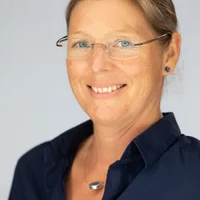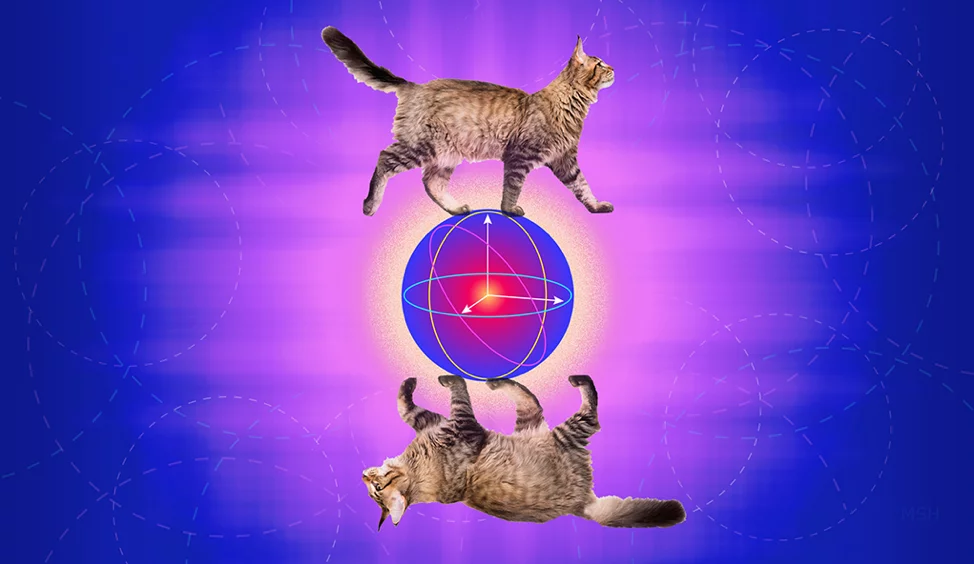Scientists in the Applied Physics department of Yale University – one of the leading authors, Alexander Grimm, has in the meantime relocated to PSI – have developed a new device that combines the Schrödinger’s cat concept of superposition (a physical system existing in two states at once) with the ability to fix some of the trickiest errors in a quantum computation.
In a traditional computer, information is encoded as either 0 or 1. The only errors that crop up during calculations are “bit-flips,” when a bit of information accidentally flips from 0 to 1 or vice versa. The way to correct it is by building in redundancy: using three “physical” bits of information to ensure one “effective” — or accurate — bit. In contrast, quantum information bits — qubits — are subject to both bit-flips and “phase-flips,” in which a qubit randomly flips between quantum superpositions (when two opposite states exist simultaneously). Correcting for both types of errors in general requires even more redundancy and thus many physical qubits.
A single Schrödinger’s-cat qubit has the advantage of being able to prevent phase flips all by itself. The cat qubit encodes an effective qubit into superpositions of two states within a single electronic circuit — in this case a superconducting microwave resonator whose oscillations correspond to the two states of the cat qubit. The researchers said they are able to change their cat qubit from any one of its superposition states to any other superposition state, on command. In addition, the researchers developed a new way of reading out — or identifying — the information encoded into the qubit.
The experiment was carried out in the group of Prof. Michel Devoret at Yale university. One of its leading authors, Alexander Grimm, developed the project as a postdoctoral associate in Devoret’s group. He has since joined PSI as a tenure-track scientist in PSI’s Quantum Technologies Group. The results were published in Nature, incidentally on Erwin Schrödinger’s birthday (Text based on Yale press release).
Contacts
Dr. Alexander Grimm
Laboratory of Micro- and Nanotechnology
Paul Scherrer Institut, Forschungstrasse 111, 5232 Villigen PSI, Switzerland
Telephone: +41 56 310 4176, Email: alexander.grimm@psi.ch
[English, French, German]
Original Publication
Stabilization and operation of a Kerr-cat qubit
A. Grimm, N. E. Frattini, S. Puri, S. O. Mundhada, S. Touzard, M. Mirrahimi, S. M. Girvin, S. Shankar & M. H. Devoret
Nature 584, 205–209 (2020)
DOI: 10.1038/s41586-020-2587-z


